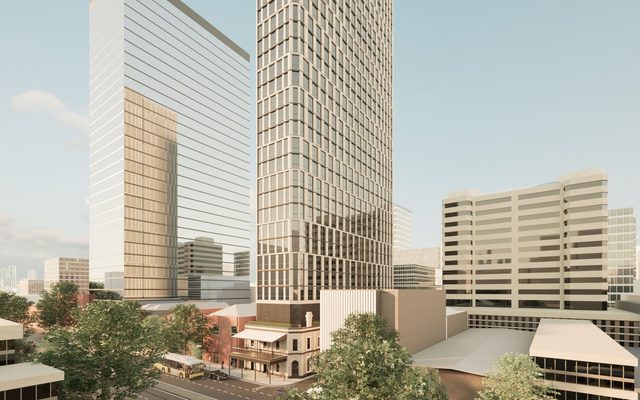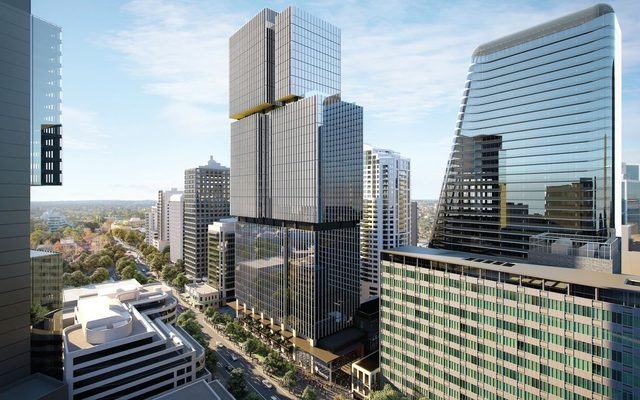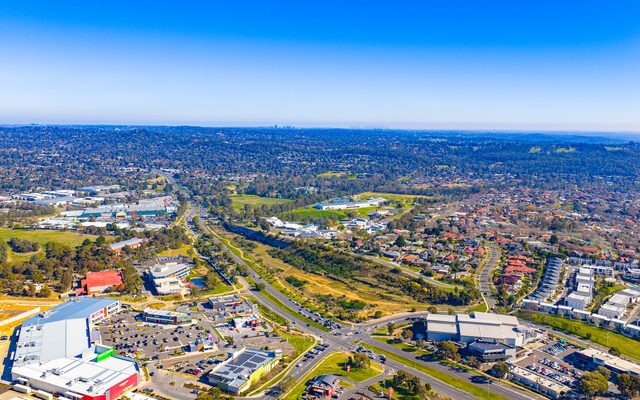This article is from the Australian Property Journal archive
RETAIL rents in Melbourne’s northern CBD precinct have soared by more than 30% in two years, off the back of strong appetite from hospitality businesses who are catering to the rise of student accommodation and residential developments.
Agents Fitzroys said rents are being pushed to unprecedented levels as operators, led by Asia-based hospitality businesses, which is defying the challenging retail environment.
The precinct is well supported by the surrounding student accommodation, within close proximity to the Queen Victoria Market, Melbourne and RMIT universities.
Fitzroy associate Alex Shum said the boom in student accommodation and residential development in recent years has subsequently driven competition between tenants and a rental rate surge.
Rents for a typical shop of up to circa 100 sqm along Elizabeth Street were being leased at around $1,500 to $1,700 per sqm in 2017, were now commanding around $2,500 to $2,700 per sqm – reflecting growth of more than 30% per annum in that time.
In the latest deal, Shum has leased 299 Elizabeth Street to international bubble tea brand Prime’s Hai, at a record rate for the area of $3,150 per sqm. The off-market five-year deal with a five-year option for the 73 sqm space was struck at an annual rent of $230,000 net.
“The northern part of the CBD – especially along Swanston and Elizabeth Streets – is becoming increasingly sought after and targeted by Asia-based franchises who are well known overseas.
“They want to get into the location as they are familiar to the large numbers of students in the area. These are brands that university students living in the surrounding high-rise developments will recognise and love from back home,” he added.
At the same time, Fitzroys agents Jordan Ceppi and Chris James have sold the vacant 526 Swanston Street property in Carlton for $1.5 million to Singaporean restaurateur, who plans to open their first Australian restaurant.
The 125 sqm property is at the bottom of a multi-storey mixed-use building and has a combined frontage of 31 metres. Ceppi said the campaign generated more than 80 enquiries.
“This is a future-proof property positioned between RMIT University and Melbourne University campuses, and within close proximity to a number of high-density and student accommodation developments, that attracted investors and owner occupiers alike,” he said. “The retail landscape in and around the northern precinct of Melbourne’s CBD is witnessing strong demand from experienced Asian cuisine food and beverage operators, which offer a familiarity to the high number of international students nearby.
“This vacant premises offered a blank canvas for the purchaser to create their own offering in the mould of their successful existing ventures.” Ceppi said.
According to the Department of Education, international tertiary and post-secondary student enrolments in Victoria have jumped by nearly 44% in the past three years to almost 270,000.
Purpose-built student accommodation projects recently completed or in the pipeline in the region include several by major global player Scape Student Living, including locations on Swanston Street and Franklin Street; Journal Student Living’s projects on Swanston Street and Leicester Street; GreenFort Capital’s UniLodge Place at 478-488 Elizabeth Street; and Wee Hur’s 185 A’Beckett Street.
Atira has completed its 42-50 La Trobe Street project nearby, as has Iglu on Franklin Street project, while Cedar Pacific has sites opening in Carlton and North Melbourne this year, and has just acquired development sites on Wills Street and La Trobe Street.
According to Melbourne City Council, there are nearly 13,700 apartments in the northern CBD area above Bourke Street that are either under construction of have been approved.
Shum and colleague Terence Yeh recently leased the 200sqm double fronted building at 423-425 Elizabeth Street to dessert house chain Hui Lau Sahan from Hong Kong, at a precinct record of $400,000 per annum net on a 10-year lease. The rental rate reflected a sizeable uplift on the previous terms struck for the property in early 2017 at $180,000 per annum.
“The Chinatown precinct has traditionally been designated as the hotspot for Chinese and other Asia-based operators. But this focus has organically shifted in recent years, and the current boom has in a sense created a new Chinatown in Melbourne’s CBD,” Shum declared.
Shum and Yeh’s lease to Hui Lau Shan at 423-425 Elizabeth Street means the dessert house chain will take the place of Spot On Motorcycles, which had occupied the building for several decades.
Other recent deals have seen international Chinese restaurant chain Orient Hot Pot take up the nearby 55-59 A’Beckett Street property formerly occupied by electronics specialist Jaycar; Da Long Yi open at 398 Elizabeth Street, and New Life Hot Pot at 470 Little Lonsdale Street.
They join Asian cuisine operators Shujinko Ramen, Hot Star Chicken, Gong Cha, Torosan Ramen, Nene Chicken, Sushi Hub, Da Long Yi, Gotcha Tea and renowned Chinese BBQ restaurant Rose Garden in the area.
Operators looking for space extended to fast food giant Hungry Jack’s, to which Shum and Yeh leased 500sqm at 260 La Trobe Street – on the busy corner of Elizabeth Street – for its new CBD flagship site. The space had been home to Endeavour College for 20 years, and Hungry Jack’s signed a 15-year lease, motivated by the growing student accommodation and residential population.
New developments are extending right across to the traditionally quieter north-west corner, including Upper West Side and West Side Place, which will bring more than 5,000 apartments into the block bound by La Trobe St, Spencer St, Bourke Street and King Street.
Fitzroys director of leasing Rick Berry said the most recent deals reflected the ongoing retail strength of CBD north and the education precinct.
“Street level retailing in the north is strong as are the major undercover centres of Emporium and Melbourne Central, reflecting the strength of activity here.
“This will continue as the education and research institutions undertake further development, government invests in landmark cultural destinations such as the State Library and Queen Victoria Market and the Metro rail moves towards completion.” Berry said.
Australian Property Journal




